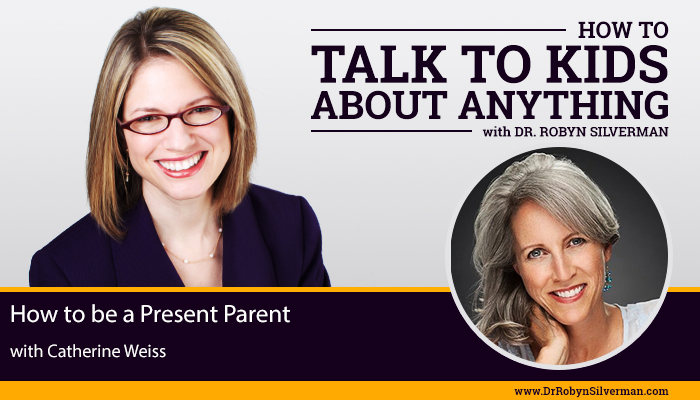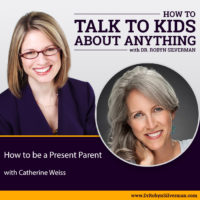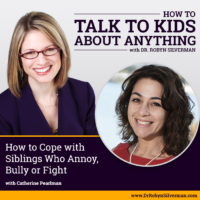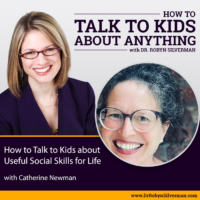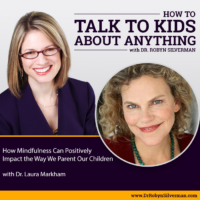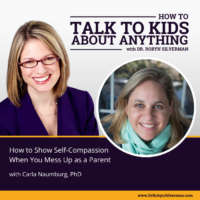Podcast: Play in new window | Download
Subscribe: Apple Podcasts | RSS | More
How to Be a Present Parent
This podcast focuses on how to be a present parent—looking inward instead of outward for ways to feel more connected to the present moment, yourself and your child. We explore the self-inquiry process to understand how we can become derailed by certain thoughts and how to then open our minds to other alternative thoughts, perspectives and truths that can put us back on the right path.
Special guest: Catherine Weiss
As parents, it is normal to have some stressful thoughts. We might be in conflict with our child and think; “he’s not 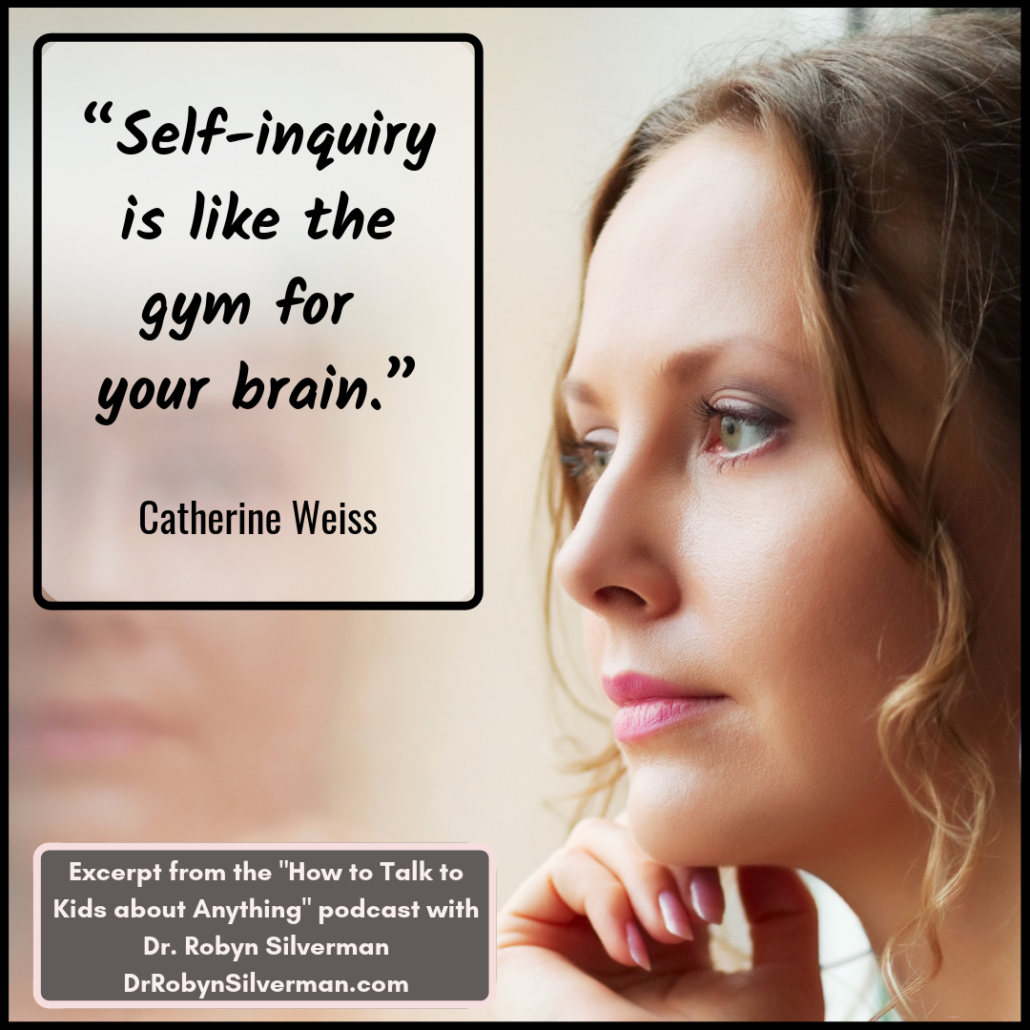 listening to me,” “she’s so spoiled” or “he’s sucking the life out of me.” But what if we turned these statements on their ear to evaluate their truth but also look inward to see what the actual truth might be? We have the greatest of intentions and love our children—but it is often that we live in the moment. The moment of running from here to there, picking up, dropping off, cooking, cleaning, helping, orchestrating, planning—and getting frustrated, angry or upset when life’s little irritating moments get in our way—our children fighting with us, fighting with each other, not going along with what we deem “the flow.” And I get it—as a mother I am there with you and get this frustration deeply. Today, let’s look into self inquiry so that we can learn to prepare for the long haul rather than the fleeting moment, connection rather than disagreement and love rather than fear. I’ll be going on this journey with you as I am hanging out in the same boat, needing to learn and practice the same lessons and gain the same insights from our next guest who is ready to help us.
listening to me,” “she’s so spoiled” or “he’s sucking the life out of me.” But what if we turned these statements on their ear to evaluate their truth but also look inward to see what the actual truth might be? We have the greatest of intentions and love our children—but it is often that we live in the moment. The moment of running from here to there, picking up, dropping off, cooking, cleaning, helping, orchestrating, planning—and getting frustrated, angry or upset when life’s little irritating moments get in our way—our children fighting with us, fighting with each other, not going along with what we deem “the flow.” And I get it—as a mother I am there with you and get this frustration deeply. Today, let’s look into self inquiry so that we can learn to prepare for the long haul rather than the fleeting moment, connection rather than disagreement and love rather than fear. I’ll be going on this journey with you as I am hanging out in the same boat, needing to learn and practice the same lessons and gain the same insights from our next guest who is ready to help us.
Catherine Weiss is the author of a radically different parenting book for mothers, currently 5-stars on Amazon, called, The Present Mother: How to Deepen Your Connection With the Present Moment, Yourself, and Your Child. The New York Times bestselling author of The Conscious Parent, Dr. Shefali Tsabary wrote the foreword to The Present Mother and in it says, “Any parent who reads and practices the insights in this book will not only heal their own wounds from childhood, they will change things for their offspring for all generations to come.” Catherine’s readers call The Present Mother THE parenting book and that it takes Conscious Parenting to the next level.
The podcast provides:
- How to use self-inquiry and how can it help the parent and the family- especially in those moments when we feel disconnected, guilty, worried or angry about something going on with our children.
- What we gain from the self-inquiry process that begs us to let go of this need so that we can, indeed, be present and helpful.
- How to respond to the nagging voice in our heads that we should clean up and make more of an effort in our homes
- How approval of oneself and self-gratitude can be an important process for all parents
- How to apologize and reconnect after doing the self-inquiry work
Important Messages:
- We love the children we are raising or working with and we don’t want to speak to them in unkind ways- so we
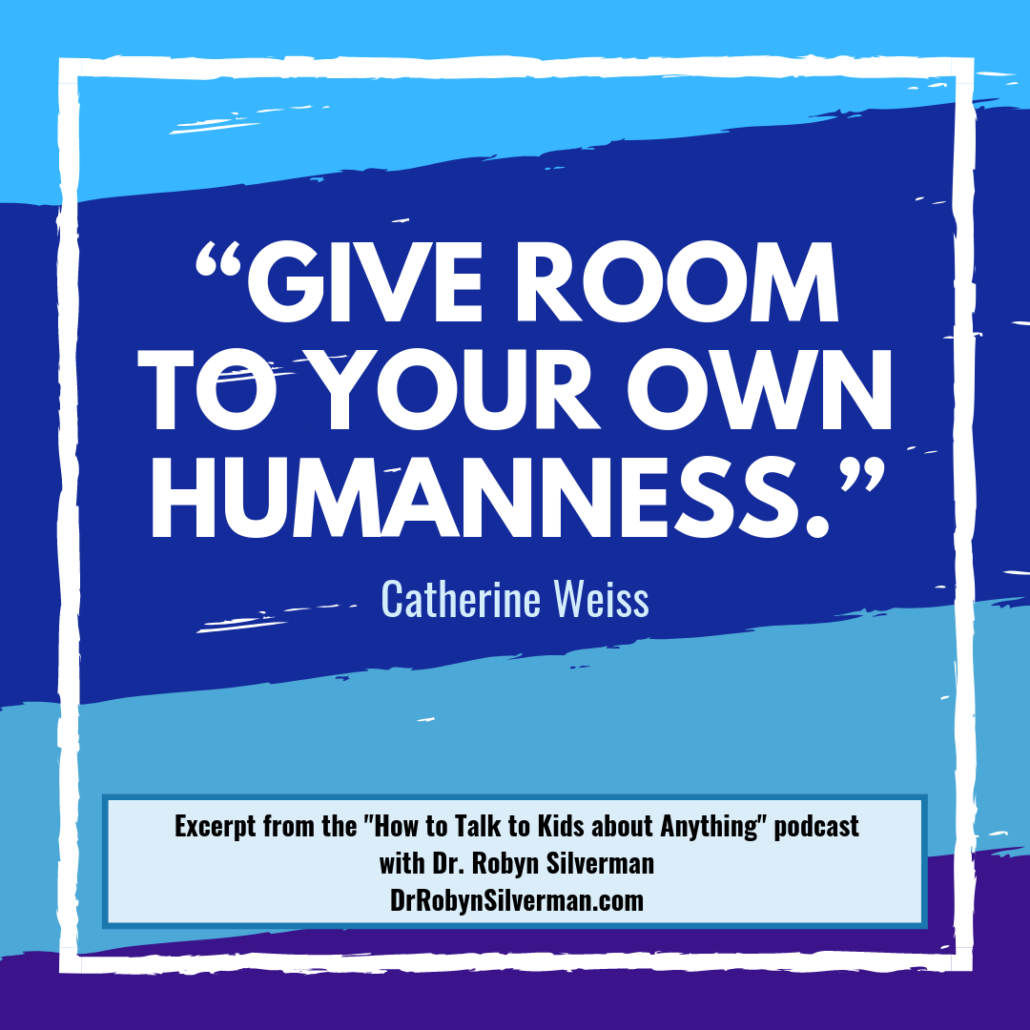 know that we have to do some work so that we can remain present, calm and collected when with our children- even during frustrating moments.
know that we have to do some work so that we can remain present, calm and collected when with our children- even during frustrating moments. - What do we do when we get angry in these frustrating parenting moments? We must look within.
- Books Catherine loved during her quest for answers: (1) The Power of Now by Eckhart Tolle and (2) Loving What Is by Byron Katie
- Worried about what to say and worried we are going to say the wrong thing.
- Like going to the gym- self inquiry is like the gym for the brain. Working the neuropathways in your brain. It takes time—but then, after doing the work consistently, suddenly you realize- you are more present.
- Self Inquiry:
- Start with remembering the exact situation when a negative thought governed your mind. Snap shot. “__________ doesn’t listen to me.”
- Is it true that he should listen to me? Is it absolutely true that he should listen to me?
- How did you react in that moment when you believed that s/he should listen to me? (judgmental, loud, say mean things)
- Who would you be without that thought that s/he should listen to me? (been calmer, more present, etc- awareness blocked when we are hung up on thought)
- What other perspectives can we use to look at this- turn arounds (i.e. opposite, child’s perspective) For example; “He should not be listening to me.” Notice what bubbles up. Are there any examples that make that statement true or truer than the original statement? Or other turn around- “I should be listening to my son/daughter.” Turn around: “I should listen to myself.” (listen to your voice- is it raised? Do you want to sound this way? Or, have a chat with your child before the situation so that it’s not happening in the moment.
- This is not about stepping back as a leader in your child’s life- you still are the leader. But you must listen and be present.
- When we start being the “fixer” and the kids don’t want you to interfere—and if it gets in the way of our connection, we lose our power. We don’t want our kids to feel like they need to make us happy.
- When your child is unhappy, you don’t want a franticness in you that makes you need to calm them down so that you can be happy.
- Stressful thought- inquiry. “I really want ________ to be happy.” Go through steps of inquiry. Once you get to turn arounds you might find; “I want ME to be happy with her C letter grade.” “I want HER to be happy with her C-letter grade.”
- Messy house: “My house should be clean!” If you are upset when you have the thought and not upset when you don’t have the though, is the room the real problem?
- We’re not talking about excavating part of yourself and taking those thoughts, burying them and never looking at them again. You are adding neuropathways that give you different perspectives. Be a happier person- taking care of things peacefully.
- You don’t need gratitude from others- you need gratitude for yourself.
- Self inquiry- you feel like you are learning all over again. Share your self- inquiry process and say you are sorry in an honest, genuine way- to make a genuine heartfelt connection. “I’m working on this.”
Notable Quotables:
-
-
- “Once my toddler started doing things that were causing a lot of stress in me, I completely lost my lid. I had no idea where that was coming from I had such shock and disbelief about the words that were coming out of my mouth. I had never treated another human being like that in my whole life so I was determined to get to the bottom of it because, just like everyone listening, we love our children or the children we are taking care of and we don’t want to speak to them in unkind ways.”
- “We worry so much that we’re going to say the wrong thing and we’re going to screw our children up for their whole life. We put so much pressure on ourselves to do it right, say it right, according to the external world of advice about how to raise children. Flip the mirror inward and look at yourself. It changes everything. We wake up to a whole new world.”
- “Self-inquiry is like the gym for your brain.”
- “When you are more present, you end up speaking the perfect words to others- no matter if it’s with your child, the grocery clerk, your spouse or your teammate.”
- “It is human nature for parents to want to take care of their children and we should keep doing that but we shouldn’t take that to an extreme and constantly be on alert, making sure that our child is happy.”
- “Own your gratitude for yourself. You don’t require it from anyone else. If you outsource gratitude to others, it’s too much of a burden.”
- “Give room to your own humanness.”
-

